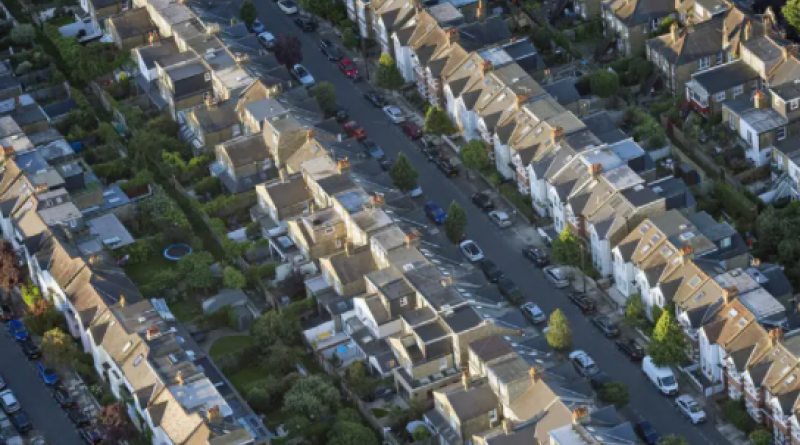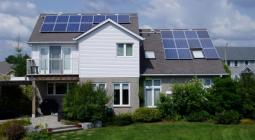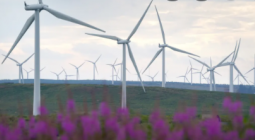Why every UK household should declare a climate emergency – we need to send a collective message

We need a just and fair transition to limiting our emissions - and one that doesn’t push people towards fuel poverty
Climate breakdown is starting to take hold and the link to rising levels of carbon emissions is irrefutable. But few people realise that how we heat and insulate our homes is one of the worst culprits.
Almost a fifth of total UK emissions come from our 29 million homes, the vast majority of which are heated by gas boilers that emit carbon dioxide. We have one of the oldest and least energy-efficient housing stocks in Europe, and now, thanks to Covid-19, we are spending more time in them than ever before. Heat is lost through the fabric of these leaky buildings: through walls, floors and roofs, which means we consume far more gas than we should.
As part of the Paris climate agreement, the UK government has committed to legally binding targets to reduce emissions by 78 per cent in less than 15 years, and to zero by 2050. Those are big numbers, as they should be. The latest report from the Intergovernmental Panel on Climate Change (IPCC) found that the planet is already dangerously close to hitting the widely discussed 1.5C threshold and that “human-induced climate change is already affecting many weather and climate extremes in every region across the globe”.
Later this year, the UK will host the Cop26 climate summit in Glasgow. Many of our industries and their associated emissions will be discussed by our global leaders. But will the emissions from homes be addressed?
It doesn’t look hopeful. Less than one year after the government earmarked around £2bn for the green homes grant – a new scheme intended to help households pay for energy efficiency retrofit improvements including home insulation, heat pumps and new efficient glazing – Boris Johnson scrapped it. Despite the strong will of households and the construction industry to partake, significant delays, problems issuing vouchers for grants and a complicated application process left many out of pocket and out of patience.
It’s clear that the climate is not a priority for the government. While ambitious targets sound impressive, the track record on the climate crisis more broadly is poor. From greenlighting fracking and new coal mines to spending billions on new roads, actions speak louder than words.
Most people are worried about the climate emergency but are unaware of what they can do to make a difference. As a climate-concerned architect, I talk to my clients about how their homes are performing, and why it’s important to reduce emissions. I try to specify low-carbon materials and interventions in the refurbishment projects that I work on, but these frequently get pushed out to save costs, or sometimes due to lack of availability within the supply chain.
This problem is further exacerbated by the low standards for energy efficiency within building regulations and the nature of perceived value in our homes. A home valuation will not be increased by a better Energy Performance Certificate (EPC) rating, for example. So we’re more likely to pay thousands for a new kitchen or conservatory to add value to a property than consider a heat pump or wall insulation, than invest in measures that save us money in energy bills, improve our comfort, health and indoor air quality, as well as help the planet.
But retrofitting can cost a lot of money, and most people can’t afford it. What the existing housing stock needs is major investment, which will only come from a targeted and significant initiative to upskill the supply chain and incentivise consumer demand.
In the absence of a government-led initiative, other industry groups are stepping in, such as the Construction Leadership Council with their national retrofit strategy, or the London Energy Transformation Initiative with their forthcoming climate emergency retrofit guide. But these organisations shouldn’t have to do government work. We need a just and fair transition to limiting our emissions – and one that doesn’t push people towards fuel poverty.
Politicians are always talking about building thousands of energy-efficient new homes, but the vast majority – 80 per cent – that will exist in 2050 have already been built. And of these, almost all will need to be retrofitted to some extent to improve energy efficiency. Whilst fossil fuels are still being used to heat homes no amount of wind or solar energy generation will decarbonise our housing stock. To speed up the transition, we must reduce our energy demand.
There is an enormous opportunity here. A coordinated national retrofit strategy could create thousands of jobs, alleviate fuel poverty and allow the UK to build back better and establish a green recovery.
Sometimes the solutions can be closer and more attainable than we think. If the continuation of human life on earth depends on reducing our emissions, then surely there is no alternative.
Sara Edmonds is Thematic Group Coordinator at the Architects! Climate Action Network and director of Studio seARCH Architects
The campaign for households to declare a climate emergency is here
23 August 2021
INDEPENDENT





